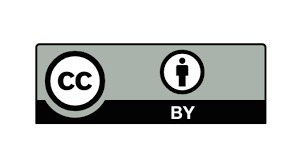Una alternativa educativa: los museos de ciencias
Una alternativa educativa: los museos de ciencias
Main Article Content
The Interactive Center of Science and Technology Frontier of the University Francisco de Paula Santander is a science museum third generation that tends to promote a space that impulse the understanding of science and technology, fosters the dissemination of scientific and technological knowledge; shows the relationship between art, science and technology, and encourage the approach to the natural environment, scientific and social, as well as the development of activities that tend to enjoy intellectual and social sensitivity in the population of the metropolitan area of Cúcuta, Norte de Santander Department and the Border Region.
Like all science museums, the Interactive Center becomes an alternative informal education that supports the formal and non formal education, but their social role goes beyond providing an approach to knowledge, it also wants from the field visit museum, recreating visitors to reflect on their training and linkage to work and society. In that sense, this paper presents some reflections of the authors with reference to the role of science museums, and in particular the Centre UFPS Interactive, educational
alternatives in different learning scenarios to the classroom.
Downloads
Article Details
Alderoqui, S. (Comp.). (1996). Museos y escuelas: socios para educar. Buenos Aires: Paidós. Disponible en: http://hdl.handle.net/10915/48025
Baczko, B. (1991). Los imaginarios sociales: memorias y esperanzas colectivas. Buenos Aires: Ediciones Nueva Visión.
Betancourt, J. (2000). Sobre recreación y museos. Ponencia presentada en el VI Congreso Nacional de Recreación. Bogotá. Disponible: http://www.redcreacion.org/documentos/congreso6/JBetancourt.htm (Consulta: 2009, Noviembre 3).
Botinelli, N. y Giamello, R. (Comps.). Ciencia, tecnología y vida cotidiana. Reflexiones y propuestas del nodo sur de la Red Pop. Uruguay. Imprimex S.A. Disponible en: http://www.redpop.org/wp-content/uploads/2015/06/cienciatecnologiayvidacotidiana1.pdf
Fernández, M. (1990) Juntos pero no Revueltos. Ensayos entorno a la reforma de la educación. Madrid: Visor Libros S. L.
Gallardo, H. y Vergel, M. (2005). De una experiencia en formación de orientadores y diseñadores a la proyección social de un museo interactivo. Ponencia presentada en IX reunión de la Red Pop. Río de Janeiro, Brasil. Disponible: www.redpop.org/8reunion/9rrp_ponencias/henrygallardo.doc. (Consulta: 2010, Marzo 8).
Jacinto, C. Los jóvenes, la educación y el trabajo en América Latina. IIPE-UNESCO. Disponible: http://www.oit.org/public/spanish/region/ampro/cinterfor/publ/ibarrola/pdf/jacinto.pdf. (Consulta: 2010, Febrero 14).
Red Nacional de Museos. Disponible: www.museoscolombianos.gov.co. (Consulta: 2009, Noviembre 23).
Riveros, H. y Betancourt, J. (2006). El público y los museos de ciencias. Algunas consideraciones. Boletín Red Pop Octubre 2006. Disponible: http://www.cientec.or.cr/mhonarc/redpop/doc/msg00026.shtml#intro. (Consulta: 009, Noviembre 3).
Ten, A. Los Museos de Nuestro Tiempo. Disponible: http://www.uv.es/ten/cac.html. (Consulta: 2009, Noviembre 23).
Vergel M. y Gallardo H. (2007). Modelación en un Museo Interactivo. Ponencia presentada en X reunión de la Red Pop, San José, Costa Rica. Disponible: http://www.cientec.or.cr/pop/2007/CO-MawencyVergel.pdf. (Consulta: 2010, Marzo 8).







